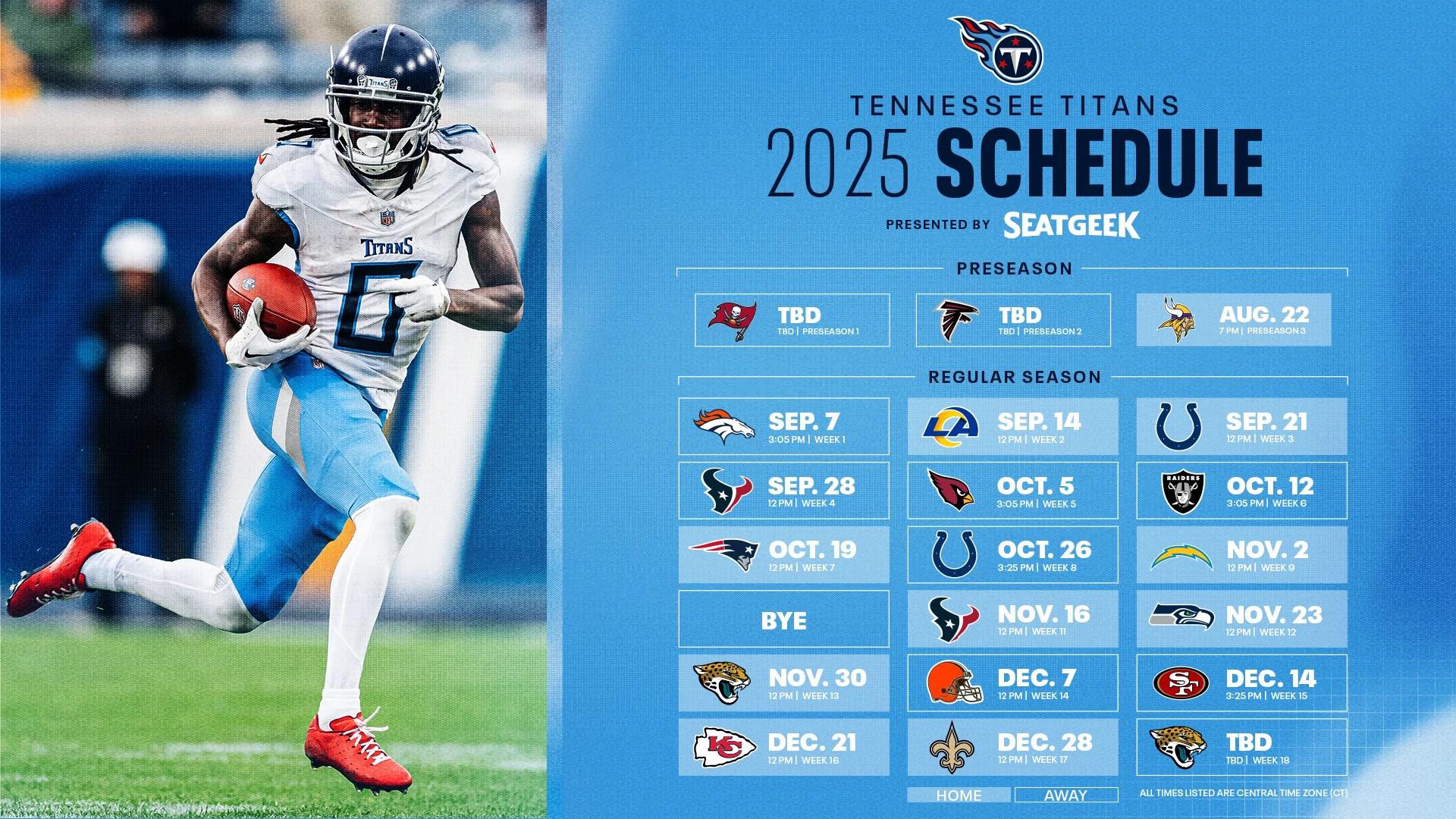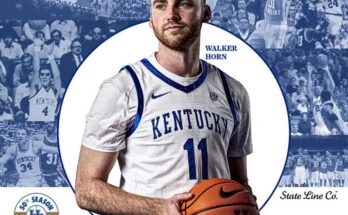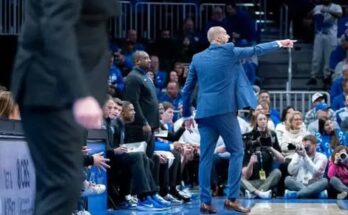The Tennessee Titans are staring down one of their most intriguing and potentially daunting schedules in years. As the NFL released its 2025 regular-season slate, the Titans learned that six of their opponents are teams who made the playoffs last year—each presenting a distinct challenge, not only in talent but in situational adversity. It’s a season that will test the resolve, depth, and identity of a franchise in the midst of reshaping itself under head coach Brian Callahan.
While much of the offseason talk surrounding the Titans has centered around the development of quarterback Will Levis, a revamped offensive line, and a new-look receiving corps featuring Calvin Ridley and DeAndre Hopkins, none of it will matter unless Tennessee can navigate a schedule filled with elite-level opponents. The Titans finished the 2024 campaign outside of the playoff picture at 7-10, but now enter the 2025 season hoping a series of bold offseason moves—including the addition of Tony Pollard to replace Derrick Henry in the backfield—will vault them back into contention.
But playoff contention won’t come easily. The Titans are set to face six teams that qualified for the 2024 postseason: the Buffalo Bills, Miami Dolphins, Houston Texans, Green Bay Packers, Detroit Lions, and the Philadelphia Eagles. Three of those games will be on the road. And several come at crucial points in the calendar—late-season matchups that could decide not only Tennessee’s fate but the positioning of other playoff hopefuls. It’s not simply a test of physicality. It’s a challenge of consistency, adaptability, and execution across four months of relentless competition.
The Titans’ matchup against the Buffalo Bills is one of the most high-profile showdowns on their schedule. The Bills, who made another deep playoff run in 2024, have long been one of the most stable and successful franchises in the AFC under the leadership of Josh Allen and head coach Sean McDermott. While their roster underwent some retooling in the offseason, Allen remains a dangerous dual-threat quarterback, and facing him will put immense pressure on a Titans defense that ranked near the bottom of the league against the pass last year. Tennessee has invested heavily in the secondary, but whether that investment pays dividends against a quarterback like Allen will be one of the early litmus tests of their legitimacy as a playoff contender.
Another AFC East opponent and playoff participant, the Miami Dolphins, present an entirely different set of problems. Tua Tagovailoa led the league in passing yards in 2024, and Miami’s offensive speed is unmatched. Facing Tyreek Hill and Jaylen Waddle requires elite-level discipline in the secondary and intelligent game-planning to limit explosive plays. Miami’s defense, too, is opportunistic and built to capitalize on mistakes—especially against young quarterbacks. For Levis, it will be a proving ground of sorts. Can he maintain poise and precision under duress against one of the most explosive and aggressive defenses he’ll see all year?
Then there’s the matter of the Houston Texans, a divisional foe and rising AFC powerhouse that made waves last season by winning the AFC South and advancing to the conference championship game. Led by C.J. Stroud, who has already become one of the NFL’s brightest young stars, Houston has emerged as a legitimate contender. The Titans will see the Texans twice, as always, and those two games may ultimately define Tennessee’s season. Stroud’s poise, accuracy, and command of the offense were on full display in 2024, and unless Tennessee’s pass rush—led by Harold Landry III and Jeffery Simmons—can disrupt his rhythm, it could be another long day for the Titans’ defense. What complicates matters even more is that Houston’s defense has become increasingly stout under head coach DeMeco Ryans, especially against the run. With the Titans transitioning to a new-look backfield and offensive scheme, facing the Texans twice will challenge the offensive line’s cohesion and Levis’s decision-making.
Crossing over to the NFC, the Titans will also take on the Green Bay Packers and Detroit Lions, two playoff teams that are very much on the upswing. Green Bay shocked much of the NFL world last year by not only making the playoffs under quarterback Jordan Love, but also winning their Wild Card game. Love, once seen as a project, has quickly proven he can be the next franchise quarterback in a line that includes Brett Favre and Aaron Rodgers. His chemistry with a young, dynamic receiving corps makes the Packers a dangerous opponent on any given week. Tennessee’s defense will need to be aggressive without being reckless, and the Titans offense must be efficient, especially in red-zone opportunities, if they want to keep pace with Green Bay.
Detroit, meanwhile, has transformed into a blue-collar, gritty powerhouse under head coach Dan Campbell. In many ways, the Lions resemble what the Titans used to be under Mike Vrabel—a physically dominant, mentally tough team that wears opponents down. Detroit’s playoff run last year included a convincing win over the Cowboys and a narrow loss in the NFC Championship. The Lions boast one of the most complete rosters in the league, particularly in the trenches, where their offensive and defensive lines have been dominant. The matchup with Detroit will be a battle of toughness, and Tennessee will need to bring a level of physicality that matches or exceeds the Lions if they hope to come out with a win.
Perhaps the most intriguing playoff opponent on Tennessee’s schedule is the Philadelphia Eagles. After a disappointing 2024 campaign that still saw them sneak into the playoffs, the Eagles have retooled and refocused with a vengeance. Jalen Hurts remains one of the most dangerous offensive threats in the NFL, and the Eagles’ defensive front is loaded with talent. Philadelphia’s mix of veteran leadership and youthful energy makes them a difficult matchup for any team. Facing them late in the season could be either a blessing or a curse, depending on what’s at stake for both teams. If Tennessee is fighting for a Wild Card spot or division title, a matchup with a playoff-caliber team like the Eagles could be the ultimate measuring stick.
These six playoff opponents form the spine of a Titans schedule that offers little room for error. While the Titans also face non-playoff teams such as the New England Patriots, Chicago Bears, and Washington Commanders, those matchups won’t come easy either. Every team in the NFL brings challenges, but it’s the six games against 2024 playoff squads that will ultimately define how far Tennessee has come—or how far they still need to go.
There’s also the matter of timing. The Titans’ schedule is backloaded with tough games, meaning the margin for early-season stumbles is razor-thin. The team must find its identity quickly. If Levis is still adjusting to his new weapons and the offensive line is still jelling, early losses could mount and make the playoff climb that much harder. Conversely, a hot start would give Tennessee confidence heading into a stretch of brutal competition in November and December. Depth will matter more than ever, especially at key positions like offensive tackle and cornerback, where the Titans have struggled with injuries in recent seasons.
The internal development of Levis could be the single biggest swing factor. While the team has made efforts to surround him with better protection and more pass-catching options, it’s ultimately on Levis to take the next step. Can he protect the football, move the chains on third down, and perform in clutch moments against top-tier defenses? The answers to those questions may determine whether Tennessee can steal wins against playoff-caliber teams.
Then there’s the wildcard of coaching. Brian Callahan is entering his first season as a head coach after a successful stint as offensive coordinator in Cincinnati. His reputation for developing quarterbacks and building creative game plans is well-documented, but now the pressure is on to translate that knowledge into wins. Callahan and his staff will be tested early and often. How the Titans adjust at halftime, respond to adversity, and manage the clock in tight games will all be put under a microscope.
On defense, new coordinator Dennard Wilson has promised a more aggressive, fundamentally sound approach, emphasizing takeaways and red-zone execution. That philosophy will be crucial against elite offenses like those of Buffalo, Miami, and Philadelphia. The Titans don’t necessarily need to shut those teams down, but they must find ways to get key stops and create game-altering plays—whether that’s through sacks, interceptions, or special teams heroics.
Ultimately, the Titans’ 2025 campaign could be defined not just by wins and losses, but by how they perform in moments of high leverage. If they can win a couple of the six games against last year’s playoff field, they’ll give themselves a fighting chance to stay relevant into December. Win three or more, and they could be in firm control of their destiny. But drop all six, and the Titans could be staring down another season of frustration and questions about the franchise’s direction.
For now, there’s cautious optimism in Nashville. The front office made its moves. The coaching staff has been revamped. The quarterback has been handed the keys. And the stage is set with a schedule that offers both tremendous opportunity and serious peril. Six playoff opponents in 17 games. That’s the challenge. That’s the reality. And for the Tennessee Titans in 2025, that’s the path back to relevance.



